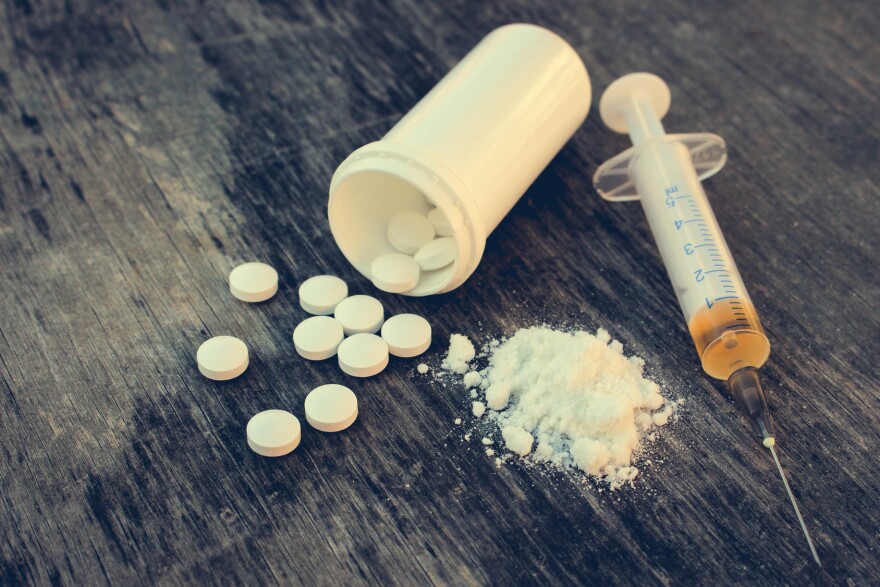Over the past few days, WUWM has examined the issues surrounding the addiction crisis in Wisconsin and the many people it affects – beyond those addicted.

The Medical Society of Wisconsin and the Milwaukee County Behavioral Health Division have teamed up to present An Evening with Patrick Kennedy to bring a well-known voice to town to put the issue in perspective.
The Kennedy family has a history of dealing with mental health and substance abuse challenges, challenges which Kennedy will address to make the point that addiction knows no demographic boundaries.
"It's now being termed a 'national epidemic' and we are really on the brink of a public health crisis not only here in Wisconsin, but across this country," says Medical Society of Milwaukee executive director Kathy Schmitz.
"Opioids have a unique quality in that they stimulate the part of the brain that makes you want to do something over again," says Pain Management Physician Dr. Michael McNett. "Some people have a very high susceptibility to this, other people are very resistant to it. But if you give it to enough people you're going to get a substantial sub group that is going to develop this need to have more and more and more, and it just starts feeding on itself and eventually they get out of control."
Schmitz notes that the rise of overdose deaths only highlights that addiction is "much more common than we realize or admit."
"If you have heart disease or diabetes, people sympathize and have no problem talking about it," she continues. "If you have an addiction or mental illness, it's not considered OK to talk about, even today."
Dr. McNett recommends that in order to reduce the number of overdose deaths and the number of people getting addicted to opiods, the shame and stigma need to be lessened.
READ: Psychiatrist: Addiction is a Disease, Not a Moral Failing
"This isn't something people should be ashamed of; it is a disease and it's caused by exposure to a toxin," he says. "We need to be much more accepting of the legitimacy of the problem; the fact that the people suffering from it are not bad people and provide them incentives to go get the kind of treatment that they really need."
McNett adds that doctors also need to be a part of the solution to learn the warning signs of addiction, monitor patients, and be cautious on how they prescribe medication. And when all else fails, doctors and the families of addicts need to be an active resource to ensure people get access to treatment.
READ: Physician: We Are The Ones 'Best Positioned' to Correct Addiction
"Wisconsin has a lot of things to be proud of...but this collaboration between the government, law enforcement, regulatory bodies, the medical profession and community groups is happening in Wisconsin to a degree that it hasn't happened in any other state," says Dr. McNett.
An Evening With Patrick Kennedy will take place at the Italian Conference Center in the Third Ward. Resource booths will be open from 5:30-7pm, followed by Kennedy's speech and a Q&A session.







